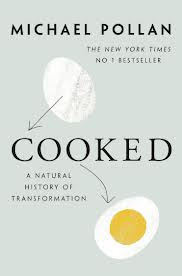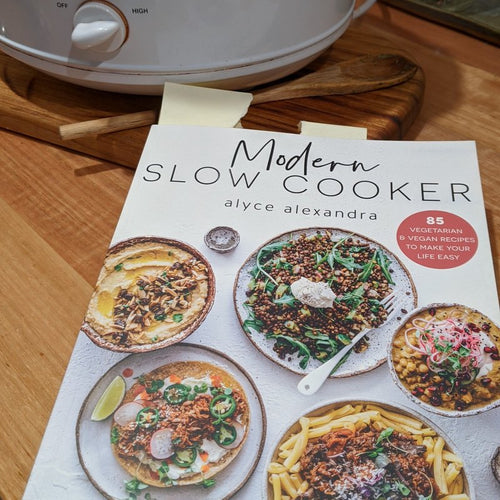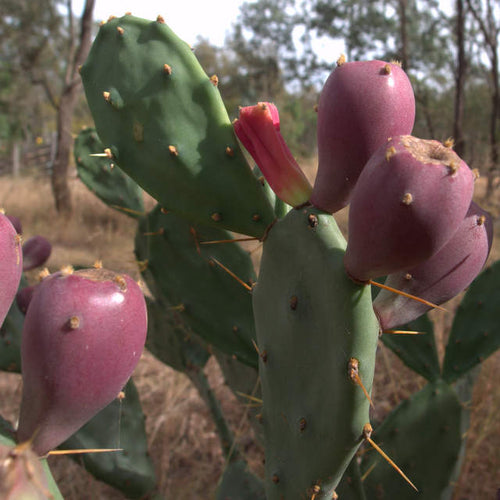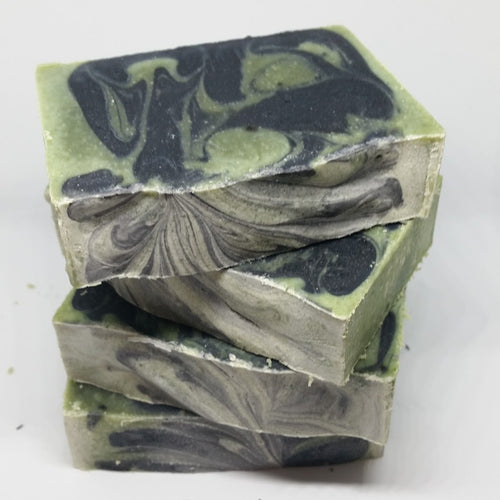Cooked - Michael Pollan - Book review
I didn't know what to expect from Michael Pollan's latest book Cooked: A Natural History of Transformation (sent to me by Penguin). I am among what I suspect is a very small minority of people who have not read The Omnivore’s Dilemma, I had seen a youtube video in which Michael Pollan interviewed Joel Salatin, so I had an idea that I might like what he had to say. I guess a friend of Joel Salatin's is bound to be a friend of mine!

The book is arranged in four chapters based on the four elements of ancient Greek phylosiphy, Fire, Water, Air, Earth, and in each chapter Michael examines a different type of cooking with the aim of pinpointing "the precise historical moment that cooking took its fatefully wrong turn: when civilization began processing food in such a way as to make it less nutritious rather than more". This is a subject with which I am currently a little obsessed, especially since I've been cooking more and more of our food from scratch in order to avoid all the unnecessary ingredients in processed foods.
The first chapter, fire, is about whole pig BBQ, which is a technique used in the southern states of the US. Personally, I had never heard of this style of BBQ before, so I found it interesting to learn about it, but then I found the chapter a bit long, maybe its more of a man-thing. However, I bravely persevered and fortunately, the next chapter, water, was about braising meat and the woman's role in the kitchen, which I could relate to, as we end up with plenty of meat for stewing when we have a steer butchered. I learnt a bit about mirepoix (which sounds like a disease, but its the chopped up veges that you use to flavour a stew) and umami (the Japanese concept of savoury taste). I enjoy Pollan's style of digressing to trivia related to the topic, and then back to the story of learning to cook a braise. Pollan writes that "the shift towards industrial cookery began not in response to a demand from women entering the workforce, or even from feminists eager to escape the drudgery of the kitchen, but was mainly a supply-driven phenomenon" - there was an excess of processed food after the war, which draws strange parallels to the invention of tampons to use up the extra bandages.... women beware, they are trying to trick us!
It was the third chapter that I found most riveting. Air is about making sourdough. Light sourdough, not brick sourdough like I made. There is so much more to know about sourdough than I ever realised and Pollan covers the subject in great detail, down to the flour, wild yeast and cooking techniques. It made me think that maybe I could attempt it again, although doing it right appears to take considerable time. This lead nicely to the final chapter, earth, which is about fermenting (my other favourite subject), including saurkraut, raw milk cheese and beer, and an excellent discussion of the importance of microbes (bacteria!) to our overall wellbeing. I learnt some new words, I think I am a "fermento" and a "post-Pasteurian" because I don't believe all bacteria are bad. In this chapter Pollan writes:
"Under the pressures of broad-spectrum antibiotics, a Pasteurian regime of "good sanitation", and a modern diet notably hostile to bacteria, the human microbiota has probably changed more in the last hundred yearers than in the previous ten thousand, when the shift to agriculture altered out diet and lifestyle."
Overall, it would have been difficult for me to not like a book about cooking from scratch and how the processed food industry has ruined our collective health, but I wasn't expecting to learn so much from the book either. For a journalist with no formal scientific education, he does a great job of interpreting the many scientific papers referenced throughout the book and making the underlying biological and chemical processes accessible to the general reader. I think he comes to the same conclusion that I have, food is complicated, and the more we learn about it through sophisticated scientific methods, the more we realise that our ancestors probably had some pretty good ideas, including eating raw milk, fermenting foods, preparing stocks and stews from real ingredients, and eating lots of butter. We can keep researching to understand why these things are good and try to replicate them in processed foods, or we can just cook from scratch like our grandparents did and probably feel better for it. I think this is one that I will read again.
Read any good books lately?























Leave a comment